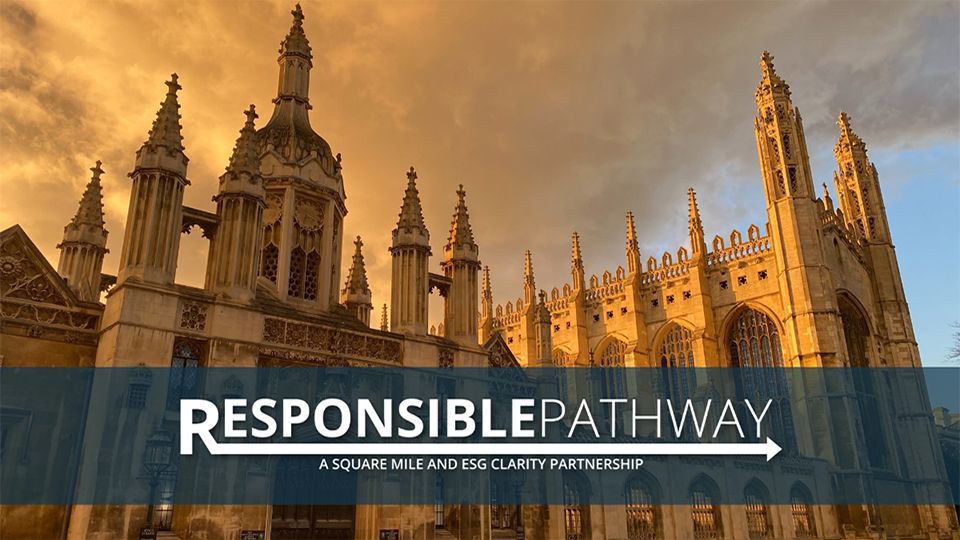While gaining traction, impact investing is often seen to be the ‘new kid on the block’ for responsible investment.
In the fourth panel of the Responsible Pathway Live event, Federated Hermes, Columbia Threadneedle Investments and Regnan discussed how to evidence impact and create greater transparency for advisers and their end-clients.
Here are the five key takeaways.
1. What is impact investing?
In defining impact investing, Mohsin Ahmad, fund manager at Regnan, described it as identifying those companies that are mission driven and delivering solutions through their product or services that help address one of the UN’s 17 SDGs.
“If you want to find solutions to the big challenges the world faces, you need to look for companies that are delivering the solutions and that is what we do with impact investing,” he said.
Going beyond this, Caroline Cantor, investment director at Federated Hermes, said impact investing has to be “quantifiable”.
“Investors looking for impact strategies should be looking for portfolios where we can show them not only the financial performance of the strategy, but also the positive impact the companies [within the portfolio] are providing,” she said.
In describing the difference between impact and ESG investing, Simon Bond executive director, Columbia Threadneedle Investments, said: “ESG is doing the thing right, impact investing is doing the right thing.”
For Bond, “doing the right thing” is about the effect of a business on wider communities, wider society and wider economies, and he argued the bond market is well suited to these needs.
2. Thinking long term
After a recent spell of underperformance, Cantor said it is important investors think long term when it comes to impact funds.
“Generally we are looking at a five-year plus timeframe for our investments and we need to make sure clients are aware of this and that it will take time to see the growth potential of these businesses come through,” she said.
“When you think about the fundamentals of these companies and the structural and secular drivers behind them, we are confident that over the five-to-10 year horizon we’re invested, these are going to be the names that deliver,” added Ahmad.
From a fixed income perspective, Bond noted style biases are also important to bear in mind. After strong performance in 2020, he said this year has been “the complete reverse”.
“This is the payback,” he said. “But nonetheless, over the cycle, we should look to outperform.”
3. Liquidity
Bond said there is a preconception impact investing is associated with being an illiquid asset class.
“We have tried to dispel this by using the power of the tradability of bonds,” he said.
“We have quite a lot of green gilts in the portfolio at present, which allows us to mitigate some of the worst excesses of the widening of spreads in the bond market.”
“We manage liquidity very carefully because you can get encouraged to invest in a lot of exciting, new companies, that are slightly illiquid,” added Cantor.
“Impact investing is still quite a nascent field and we hope that as more companies come out with interesting solutions to unmet needs, there will be more we can invest in and there shouldn’t be as issue around liquidity,” she said.
4. Identifying impact
While many fund management groups claim they are doing impact investing and addressing the UN SDGs, Ahmed argued that when it comes down to it, few are taking the time to go into the details and “go into the weed” of the underlying SDG targets.
“We have developed our approach to look not just at the positive impact companies are delivering, but also tracking the negative side as well,” he said.
“Even the best have negative aspects from an operational perspective and on the products they’re delivering, so we track all of those different metrics and engage with those companies when they are not delivering on what we want to see.”
“Quantifying the impact is extremely important,” added Cantor.
“An impact label without being able to show the positive impacts from your portfolio has no meaning for investors. So impact reporting is very important and something we need to be able to do for all the companies we invest in.”
5. The case for impact
Looking at the systemic issues the world is facing, such as climate change, Ahmed said these problems are not 10-20 years way, they are affecting us now.
“Unless we do something about it and try to find companies that try to mitigate climate change or adapt, we are really going to be in trouble,” he said.
“So it is about the future survival of our species, and with this comes an investment opportunity.”
“Investors need to ask themselves would they rather be in an investment that is seen as threatened by regulation, or will benefit from it,” added Bond.
“I see regulation as being a benefit for the types of funds we are invested in.”
All 5 panel discussions are available to watch on demand here: https://www.bonhillevents.com/EN/ResponsiblePathwayLive-July2022/OnDemand








